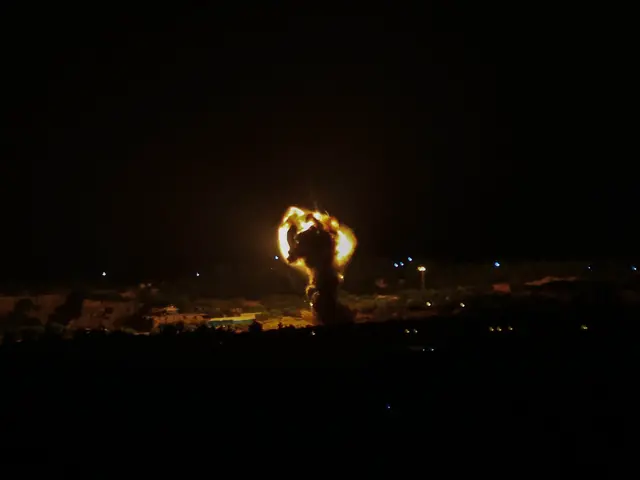The situation in the blockaded Gaza Strip turns more complicated amid Israel's threats to launch a military campaign against armed Palestinian factions in the enclave, political observers said.
The observers said the ongoing Israeli strikes on Gaza, in response to the launch of incendiary balloons towards Israel, indicate a possible military escalation.
On Tuesday, Israeli Prime Minister Benjamin Netanyahu threatened that Israel might resort to a policy of targeted killings if Hamas does not stop launching incendiary balloons towards Israel.
Netanyahu's statement came just a day after the departure of an Egyptian delegation that visited Gaza in an attempt to ease tensions in the area.
Since last week, Gaza has been witnessing tensions after Palestinian youths resumed launching incendiary balloons towards Israeli towns, where crop farms were burned.
Over the past days, the Israeli army targeted dozens of Hamas posts, which were described as infrastructure and military sites.
Maher Shamiya, a Gaza-based political expert, told Xinhua that the current situation "seems to be heading towards a military escalation, if the Israeli government does not reach an understanding with Hamas."
Israel and Hamas reached previous understandings after 85 weeks of popular rallies of March of Return on the fence separating the Gaza Strip from Israel.
However, the coronavirus outbreak in Israel and the Palestinian territories helped the Jewish state to evade these understandings, Shamiya said.
Therefore, he believes that Hamas has the right to "draw the attention of the Egyptian mediators to this crisis and urge Cairo to foster understandings again by allowing the launch of incendiary balloons."
Shamiya said Hamas is "ready" to be involved in a military escalation, even if it does not want or seek to do so, "to achieve the Palestinians' demands in the strip, who suffer from the Israeli blockade and its disastrous consequences."
The demands aim to alleviate the humanitarian crisis for the Palestinians in Gaza by expanding the fishing area, lifting Israeli restrictions on import and export, improving electricity, and initiating economic development projects.
Another Gazan political expert, Hussam al-Dajani, told Xinhua that the situation in the strip "is difficult for the Egyptian mediators to de-escalate the situation, due to Israel's delay to implement the previously agreed understandings."
He pointed out that Hamas, the ruler of Gaza Strip since 2007, wants to "solve the root of the problem with Israel by lifting the siege, not only easing it or allowing the entry of the Qatari money for poor people and industrial fuel for the power plant."
Al-Dajani explained that although military escalation will cause massive material damage in the Gaza Strip, it will "form new understandings between Israel and Hamas, with Egyptian mediation besides other parties."
Meanwhile, he believes that Hamas has become more "able to read the regional and international scene," especially since Israel is busy in normalization with Arab countries.
"Therefore, Israel is not likely to launch comprehensive aggression against Gaza, considering a good image for the normalization between the UAE and Israel," Al-Dajani added.
 简体中文
简体中文

